Written by Karl Robb for the Davis Phinney Foundation Dream Big series – Photo by Erick Gibson
What does “dreaming big” mean to you?
Dreams come and go as we age and mature. Some of our dreams are merely passing whims, while others we never forget. When I was seventeen and on the tennis team, I dreamed about playing tennis competitively in college and maybe even as a profession. The dream was big and real, but it wasn’t realistic.
Not long into my late teens, I began to see most of the symptoms of Parkinson’s creep slowly into my life. It took about six years and nine doctors to finally reach a diagnosis. I knew something was wrong, but no one would make a firm diagnosis. The hardest part of the whole diagnosis process was not knowing what I was up against. I even asked a few of my doctors if it could be Parkinson’s? I was told, “You’re too young to have Parkinson’s disease!”
When you’re in your early twenties and facing a major neurological disorder like Parkinson’s disease, your head spins, you can’t see your future and it’s easy to lose hope. Over the years I’ve learned that hope comes from within. I knew that having Parkinson’s would be a challenge. Parkinson’s also gave me a new purpose. I didn’t know how it was going to play out at the time, but I began sharing my story with everyone who was willing to listen about young-onset Parkinson’s disease and that was the first step. Looking back, I can see how all of those discussions were the seeds that would eventually lead me to write about it.
I had dreamt about starting my own business, working for myself, falling in love, getting married and inventing a product, but I had never dreamed about becoming an author. In the end, I think that many of those were “big dreams” that came true, despite Parkinson’s disease. Several of my dreams, like my books and blog, were the result from having Parkinson’s.
“Dreaming big” means making a colossal change. It’s about imagining what could be – an opportunity to improve, grow and find a place in life where you can be your very best. It’s about making the most of your good days and maximizing your best days!
How did your dreams, personal goals change after being diagnosed with Parkinson’s?
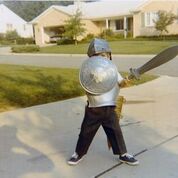 When I was ages 5-10, I was either going to be a cowboy, James Bond or a knight. By age 11, I realized none of my three choices were likely to pan out. In my teens, I dreamt of inventing, designing or even composing. I toyed with the idea of becoming a photographer, but wasn’t sure that I was good enough. When I started showing symptoms, at around seventeen years old, all of my ideas for my future were on hold. I had to live day by day.
When I was ages 5-10, I was either going to be a cowboy, James Bond or a knight. By age 11, I realized none of my three choices were likely to pan out. In my teens, I dreamt of inventing, designing or even composing. I toyed with the idea of becoming a photographer, but wasn’t sure that I was good enough. When I started showing symptoms, at around seventeen years old, all of my ideas for my future were on hold. I had to live day by day.
I was fortunate that my Parkinson’s symptoms didn’t keep me from graduating college, getting a few good jobs and allowing me to invent and ultimately write. It took a little bit of time to get there, but I did!
My life really changed when I learned about reiki. I truly believe reiki eased my symptoms and calmed my mind. Reiki helped me to get closer to achieving my dreams and it changed my whole perspective about illness. I thought the best way to get my message out was with a blog so I started one in 2008. The blog led into my books and lectures. My dream going forward is to expand my readership and help more people, with and without Parkinson’s disease!
What would you say to a fellow person with Parkinson’s who might be afraid to “dream big”?
Everyone needs a dream or a vision for the future. One of the keys to accepting and living well with Parkinson’s is to learn flexibility. Parkinson’s disease can throw out unexpected roadblocks that might delay, reroute or cancel plans. It’s so important to know and understand your limits and accept that they very well may change every day. Just because you have Parkinson’s disease, doesn’t mean you have to give up on your dreams. The path that you envisioned may not be the one you originally began with, but that doesn’t mean that you can’t create a new one.
In 1998, by pure accident, I was introduced to the complementary therapy of reiki. I was very doubtful and skeptical about the benefits of trying it; however, after trying it, I experienced so much benefit from it that I studied, practiced and became a certified reiki master. I’ve been sharing this gift with people for over fifteen years and it’s one of the most meaningful things I’ve ever done. Had I not faced Parkinson’s disease, I most likely would not have found the peace of reiki.
If I were to pick a few tips to stress to someone newly diagnosed with Parkinson’s disease, I would offer these thoughts:
Find a neurologist who is a movement disorder specialist. Monitor your medications closely to report changes and concerns to your doctor. Work with your doctors, but be sure to eat well, get your rest, exercise, socialize and seek out ways to lower stress and anxiety. Don’t stop looking for a complementary therapy that you enjoy and that works well for you! Trying a new therapy could make a huge difference in your life, just like reiki did for me.
Stay educated!
Keep positive!
Don’t stop dreaming!
Karl has had Parkinson’s disease for over thirty years. He’s a Parkinson’s advocate, entrepreneur, inventor, writer, speaker on PD issues and photographer. You can find more of Karl’s work on his website, A Soft Voice.
Read the rest of the stories in this series here.


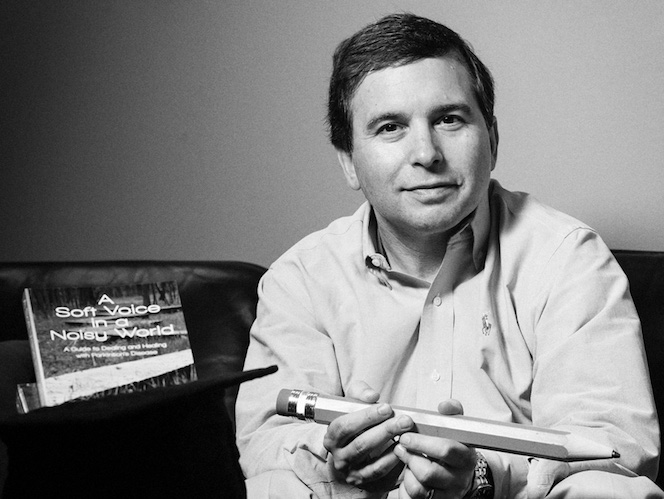




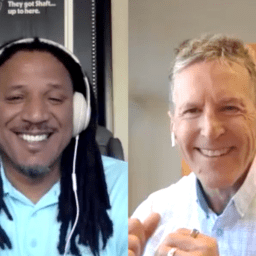
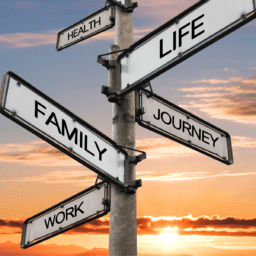
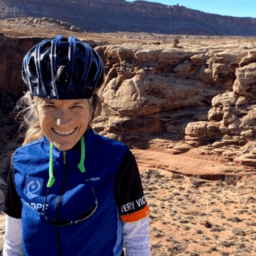
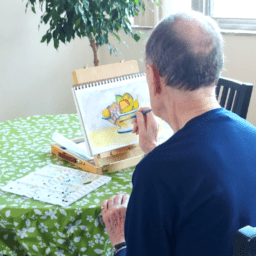
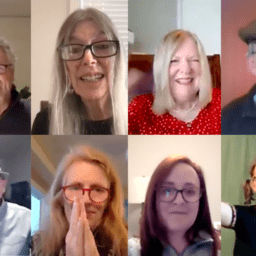
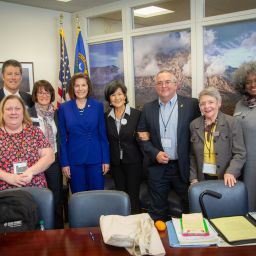
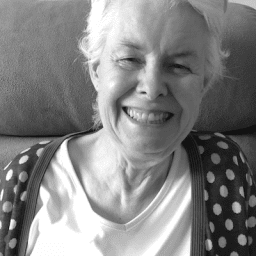
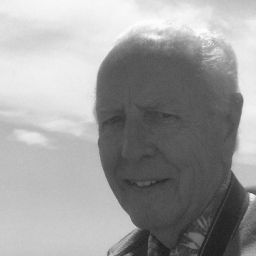

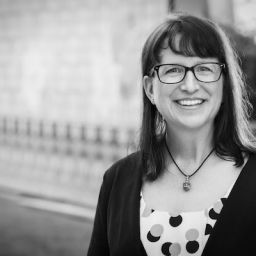
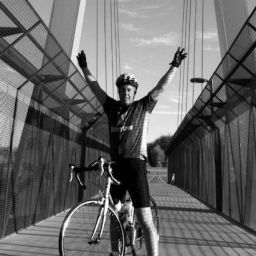
Karl was the first person with Parkinson’s I got to know after my own diagnosis. Now years later, I still don’t think I’ve met a more impressive person, with Parkinson’s or not. I’ve seen entire support groups with less overall PD experience than Karl has. But far more than just wise, Karl is exceptionally kind, smart, patient, humble, and possesses a toughness that belies his gentle nature. Karl is living, breathing hope for every one of us that our lives are far from over. We too can dream big, but we can also act in infinite small ways every day to make a huge difference. Thanks for the example, K.
And many who know the Robbs would tell you that Karl is not even the most impressive person in his own home!
Hi Gavin – Thanks for sharing. We are all very big fans of Karl at the Davis Phinney Foundation. Everything you say is true, and we’re so grateful you found him on your journey of living with Parkinson’s. Cheers to the Robbs!